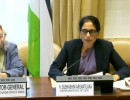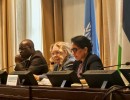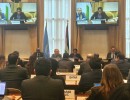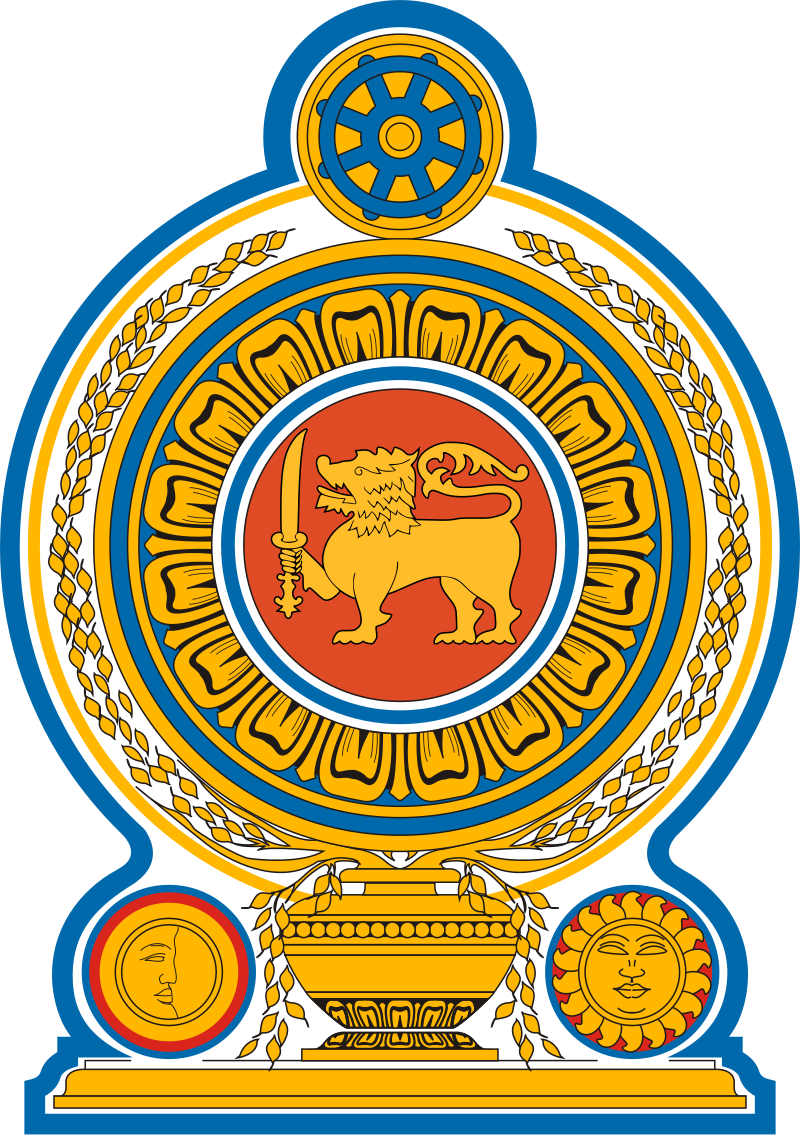
Appel d’urgence pour les secours contre les inondations au Sri Lanka

Le peuple du Sri Lanka a un besoin immédiat d’aide et d’assistance en cas de catastrophe à la suite des inondations et des glissements de terrain qui ont ravagé le pays en raison de l’impact du cyclone Ditwah.

Emergency Flood Relief Appeal

The people of Sri Lanka are in immediate need of disaster relief and assistance following the floods and landslides that devastated the country due to the impact of Cyclone Ditwah.

ශ්රී ලංකාවට හදිසි ආපදා සහන ලබා දීම

' දිට්වා' (Ditwah) සුළි කුණාටුවේ බලපෑම හේතුවෙන් ඇති වූ ගංවතුර සහ නායයෑම්වලින් පීඩාවට පත් ශ්රී ලංකාවේ ජනතාවට හදිසි ආපදා සහන සහ ආධාර අවශ්යව ඇත.

அவசர வெள்ள நிவாரண வேண்டுகோள்

Ditwah சூறாவளி காரணமாக ஏற்பட்ட கடும் மழை, வெள்ளம் மற்றும் நிலச்சரிவுகள் காரணமாக இலங்கை மக்களுக்கு உடனடி பேரிடர் நிவாரணமும் உதவியும் அவசரமாகத் தேவையாக உள்ளது.
Statement by Her Excellency Himalee Subhashini Arunatilaka, Ambassador and Permanent Representative of Sri Lanka to the UN in Geneva on behalf of the Special Committee to Investigate Israeli Practices Affecting the Human Rights of the Palestinian People and Other Arabs of the Occupied Territories
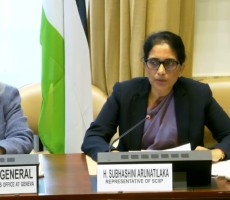
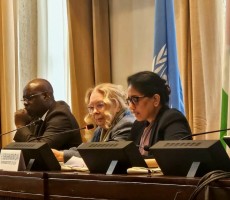
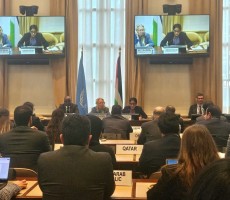

Excellencies, distinguished delegates, ladies and gentlemen,
I have the honour to deliver this statement on behalf of the Chair of the of the Special Committee to Investigate Israeli Practices affecting the Human Rights of the Palestinian People and other Arabs of the Occupied Territories.
“It is an honor to join you on this solemn observance of the International Day of Solidarity with the Palestinian People. The convening of this gathering reminds us of the international community’s enduring responsibility towards people whose inalienable rights remain unfulfilled.
I am also humbled to address this meeting in my capacity as Chair of the Committee mandated by the General Assembly to monitor the human rights situation in the Occupied Palestinian Territory and the occupied Syrian Golan. This role allows me to share reflections informed by the Committee’s observations over the past year.
This Day of Solidarity was declared by the General Assembly in 1977 and was first observed in 1978. For nearly half a century, it has stood as a reminder that the search for peace and justice for the Palestinian people remains unfinished.
In reviewing developments, the Committee has continued to witness conditions that undermine the fundamental rights and protections of Palestinians living under occupation.
The situation in the Gaza Strip remains catastrophic.
Over the past two years, tens of thousands of civilians have been killed, most of them women and children, with thousands more believed to lie beneath destroyed neighborhoods. Entire communities have been reduced to rubble. Homes, hospitals, schools and essential infrastructure have been damaged or destroyed, leaving most of the population displaced and many areas uninhabitable.
Large sections of the territory have been declared unsafe or inaccessible. Even areas identified as safe zones have come under fire. By the middle of 2025, more than four-fifths of Gaza had been placed under evacuation orders or declared no-go areas, leaving civilians with no reliable refuge.
These conditions persist despite binding provisional measures, as clarified by the International Court of Justice in its recent advisory opinions, and despite repeated calls for compliance with international humanitarian and human rights law. Humanitarian access remains restricted, and humanitarian and United Nations staff have been killed at levels without precedent in the history of this Organization.
The situation in the occupied West Bank, including East Jerusalem, has sharply deteriorated. The Committee has documented unprecedented levels of settler violence, often occurring in the presence of, or with the acquiescence of security forces. Palestinians have endured killings, injuries, mass arrests and widespread property destruction.
Settlement expansion continues at a record pace. Of particular concern is the resumption of land registration in Area C after more than five decades. This step is expected to lead to widespread dispossession and deeper settlement entrenchment. These developments amount to de facto annexation and stand in clear violation of international law and relevant Security Council resolutions.
Across the territories under occupation, we observe an overarching pattern.
Territorial control is being consolidated through settlement expansion, land appropriation, military activity and the erosion of protections afforded to civilians. The ideological framework - Land of Israel - has been used to justify settlement growth, annexation initiatives and the continued presence of military forces in parts of Gaza.
In light of these developments, several principles must guide the international community. Civilians must be protected under international humanitarian and human rights law. Annexation, whether formal or incremental, is unlawful. Humanitarian access must be unrestricted, and humanitarian and United Nations personnel must be protected. The mandate and operations of UNRWA must be preserved, for the Agency remains essential to the dignity and survival of millions of Palestine refugees.
On this Day of Solidarity, expressions of commitment must translate into meaningful action. Member States must uphold international law, protect civilians and support accountability mechanisms, including those tasked with investigating and addressing violations.
While a ceasefire is essential – and widely welcomed as a moment of relief - it cannot substitute the full implementation of legal obligations, including the need to bring an end to occupation. A just and lasting peace requires the realization of the inalienable rights of the Palestinian people, including their right to self-determination.
Let this Day remind us that solidarity is a commitment to justice, human dignity, and to the rule of law. The only prospect to express our solidarity with the Palestinian people is to recognize the legitimate and inalienable right of the Palestinian people to statehood as per the comprehensively negotiated political settlement based on the 1967 borders.
I thank you."
- Sri Lanka highlighted its achievements at the side-event titled ‘Success Stories in Tobacco Control: Lessons Learned from FCTC Policy Implementation’, 20 November 2025
- Statement by Dr. Ananda Rathnayaka, Chairman of the National Authority on Tobacco and Alcohol (NATA) at the General Debate of the Eleventh Session of the Conference of the Parties to the WHO Framework Convention on Tobacco Control (COP11)
- Secretary for Relations with States and International Organizations of the Holy See, His Excellency Archbishop Paul Richard Gallagher concludes Official Visit to Sri Lanka






